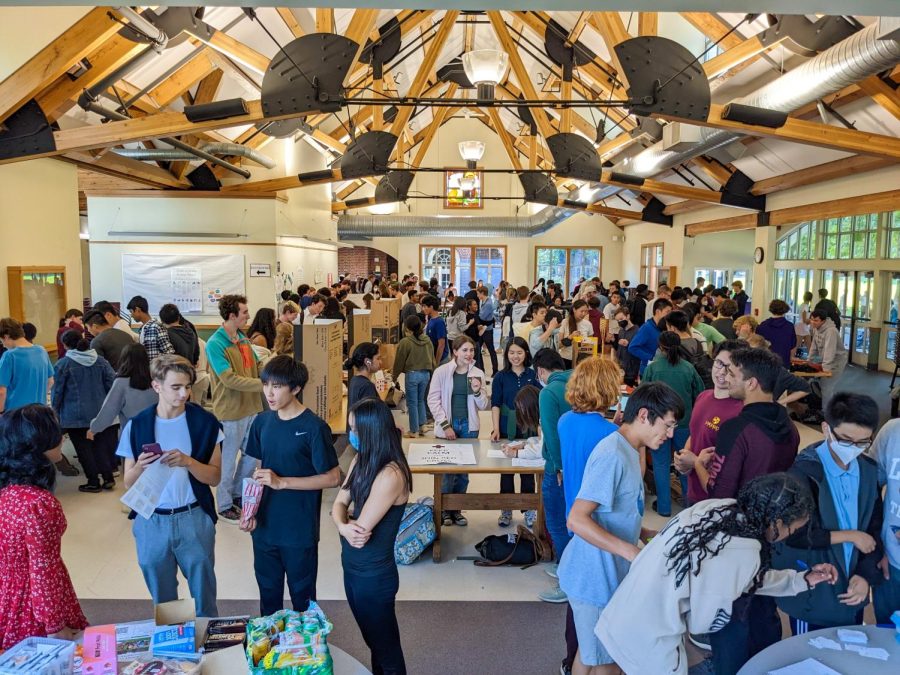Glut of Clubs Drives Low Attendance
Every Clubs Fair, new Lakesiders are inundated with a myriad of options, ranging from arts to ethics to STEM organizations galore. While the booths’ free snacks may tempt students to sign up for many clubs, only a select few are left on their radars by the end of the month. With only two activity periods every week, too many options to choose from, and school work ramping up, attendance has been dwindling in most clubs.
This year in particular, club attendance seems as unpredictable as the stock market, with leaders expressing concerns about the ebbing livelihoods of their clubs. Eva T. ’24 is a leader of GLOW (Gay Lesbian or Whatever Affinity Alliance), Puzzles and Games Club, and Science Club, and they’ve recently seen a decline in the attendance of all three. “Only four members show up consistently [to GLOW] even though we have over one hundred people on the mailing list,” Eva shares. Not only has low turnout hampered GLOW’s progress in civic missions, but it has also weakened the tight-knit community that the club fostered last year. Eva misses “the connection of having so many people in the room. Last year, GLOW’s first BUNKER meeting was really massive.” To combat the low turnout, GLOW is transitioning to project-based, service-oriented activities. Leaders and members are planning Pride Night – for GLOW’s annual Week of Listening – to create a larger, more structured community space. The affinity group plans to decorate the gym with Pride flags, host a booth, give away free pins, and distribute informative brochures with a comprehensive guide of LGBTQ+ terms.
Eva’s Science Club and Puzzles and Games Club also face low attendance, despite having been active for multiple years. To garner more members, Science Club has merged with Neuroscience Club, while Puzzles and Games Club only meets once a month to improve the likelihood of attendance. Nonetheless, Eva has still had to cancel one Puzzles and Games Club meeting this year due to low turnout. Eva hypothesizes that “the sheer amount of clubs is overwhelming this year” or that the freshman class, often a large portion of potential club attendees, is less engaged with clubs.
One solution to increase membership in existing clubs could be to make the process for starting a club more selective. Student Government can make renewing clubs a priority over starting new clubs that are similar to existing ones. They could also institute a regular member count requirement for a club to be renewed the following year. Of course, these potential solutions come with their drawbacks, as limiting clubs may ultimately restrict student agency.
Although there is no perfect solution to the excessive number of clubs at Lakeside, creating more regulations for club application approval could make the club experience more welcoming for incoming ninth graders and less competitive for club leaders. As Eva’s story shows, the balance between what is best for the community and students’ freedom to pursue their passions will shape the future of Lakeside’s clubs.
Tatler’s resident writer and logic puzzle creator, Angelina P., has a knack for CRISPR-Cas9 technology, Spanish television, and Balanchine ballet. When...

